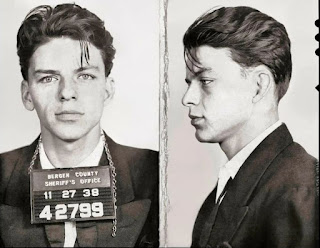Frank Sinatra, a prominent figure in the entertainment industry
Frank Sinatra, a prominent figure in the entertainment industry, demonstrated unwavering dedication to the civil rights movement and was an outspoken advocate against racism. He actively took part in promoting racial integration and equality during a time when such stances were not always well-received.
Sinatra made a conscious decision to boycott hotels and clubs that practiced racial segregation, refusing to perform at venues that did not allow black individuals. Furthermore, he ensured that his band members, regardless of their race, received equal treatment and pay, setting a progressive example for the industry.
One pivotal moment in Sinatra's efforts for integration occurred during the rise of Las Vegas as a popular entertainment hub. At that time, black performers were allowed to play in showrooms but were barred from staying in the hotels.
Sinatra took it upon himself to confront the board of directors, who had questionable histories, and urged them to embrace progress by allowing equal access for everyone. He challenged their outdated beliefs by emphasizing that "the money is green,"
emphasizing the importance of inclusivity. Through his influence and support, particularly for fellow artist Sammy Davis Jr., Las Vegas ultimately became an integrated city.
Not only did Sinatra act on his beliefs, but he also used his fame and platform to support other civil rights activists. He actively supported Martin Luther King Jr. and contributed significantly to fundraising efforts that bolstered the Civil Rights Movement.
In 1958, Sinatra eloquently expressed his belief in universal friendship devoid of racial or class distinctions, emphasizing that true connections are built on mutual respect, affection, and shared values.
Frank Sinatra's commitment to racial equality and his belief in universal friendships served as an inspiration to many during a critical period in American history.
His actions and advocacy demonstrated the impact a public figure can have when using their influence to promote positive change and unity among all individuals.




Comments
Post a Comment